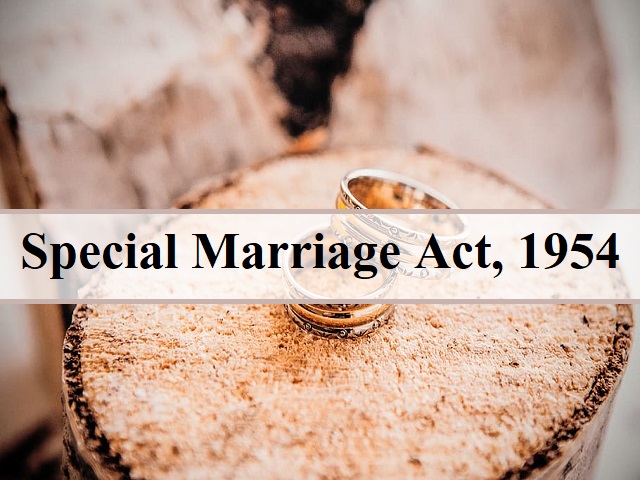News Highlight
The Supreme Court dismissed a writ petition challenging provisions of the Special Marriage Act (SMA), 1954 requiring couples to give a notice declaring their intent to marry 30 days before their marriage.
Key Takeaway
- SC rejected the writ petition on the grounds that the petitioner was no longer an aggrieved party as she had already solemnized her marriage under SMA.
The Special Marriage Act (SMA), 1954
- The Special Marriage Act, 1954, is an Act of the Parliament of India with provision for civil marriage for people of India and all Indian nationals in foreign countries, irrespective of religion or faith followed by either party.
- A marriage under the Special Marriage Act of 1954 allows people from two different religious backgrounds to come together in the bond of marriage.
- The Act lays down the procedure for both the solemnization and registration of marriages where either the husband or wife or both are not Hindus, Buddhists, Jains, or Sikhs.
Key Provisions of SMA
- Section 5 of the SMA
- It requires couples getting married under it to give notice to the marriage officer 30 days before the marriage date.
- Section 6 of the SMA
- It requires notice to be entered into the Marriage Notice Book maintained by the Marriage Officer, which can be inspected by “any person desirous of inspecting the same.
- Section 7 of the SMA
- It provides the process for making an objection such as if either party has a living spouse, is incapable of giving consent due to “unsoundness of mind” or is suffering from a mental disorder resulting in the person being unfit for marriage or procreation.
- Section 8:
- It specifies the inquiry procedure to be followed after an objection has been submitted.
How do these provisions make couples vulnerable?
- Harassment by anti-social elements:
- Public notices has been used by anti-social elements to harass couples getting married.
- Officers’ incompetence:
- There have been instances, where marriage officers have gone over and beyond the law and sent such notices to the parents of the couple.
- Violative of Article 21
- This is because these provisions require couples to give a notice 30 days before the date of marriage, inviting objections from the public.
- This seriously damages one’s right to have control over her/his personal information and its accessibility.
- Violative of Articles 14 and 15
- The provisions of is also violative of Article 14 on the prohibition of discrimination on grounds of religion, race, caste and sex as well as Article 15 on right to equality as these requirements are absent in personal law.
Content Source: The Hindu



